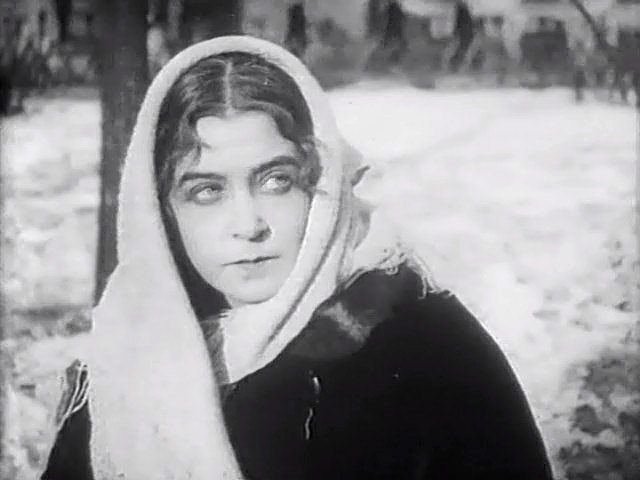
The Prostitute (V.O. Prostitutka)
USSR, 1927
Director: Oleg Frelikh
Screenplay: E. Demidovich
Noi Galkin
Cast:Vera Georgiyevna Orlova, Olga Bonus, E. Yarosh
Plot
Young Lyuba lives in a boarding house with her aunt Varvara. Among the other guests there is a lecherous individual who seeks to seduce her. As a result, a series of events will lead Varvara to expel her niece. The girl ends up in the cold and snowy streets, exposed to all kinds of dangers. She is soon found by a “benefactress”, who takes her home and adopts her. But the real intention of this woman, far from being charitable, is to sexually exploit Lyuba as a prostitute under her orders…
The unfortunate young woman is rejected by society. She tries to reintegrate, but she has enough debts. In addition, she has to take care of a sick son. Few are those who take pity on her and try to help her. She doesn’t even have enough to feed her little boy. And it won’t be easy to find a conventional job…
In a conference, a woman begins to explain to the workers the problems of prostitution with its consequences and statistics. We are also shown how a brothel works and how some prostitutes (or suspected prostitutes) are persecuted by the police.
Later Lyuba meets the handsome Shura, who proposes to help her. He is a member of the Komsomol, the youth organization of the Soviet Communist Party.
Comment
The film shows us the treatment that the sordid subject of prostitution received in early Soviet-era films. It is a film halfway between melodrama and documentary-reportage with didactic purposes, as we will see statistics, graphs and others that try to raise awareness among citizens to get them away from the vice, thus stopping the promotion of “the oldest profession in the world”.
Beyond that, the film lacks interest. It fails to attract the viewer’s attention as one would expect from a film with such a title, such a context and such characteristics.
It is a tearful drama, which, as the minutes go by, becomes long and heavy. It is only recommendable as a historical document, for those who for some reason must delve into the most hidden cinema of the early Soviet period. For others it will be a soporific waste of time.
It pretends to be a drama and a documentary, without really being either. However, it is striking that the Soviet regime allowed such a film, which showed that not everything was so idyllic in the “workers’ paradise” (although it would apparently be censored later, in 1937).
It talks about venereal diseases, poverty, hunger, misery… In other words, issues that officially did not exist in the utopian USSR.
The film was made by a Belarusian production company, but it is shot in Moscow.
